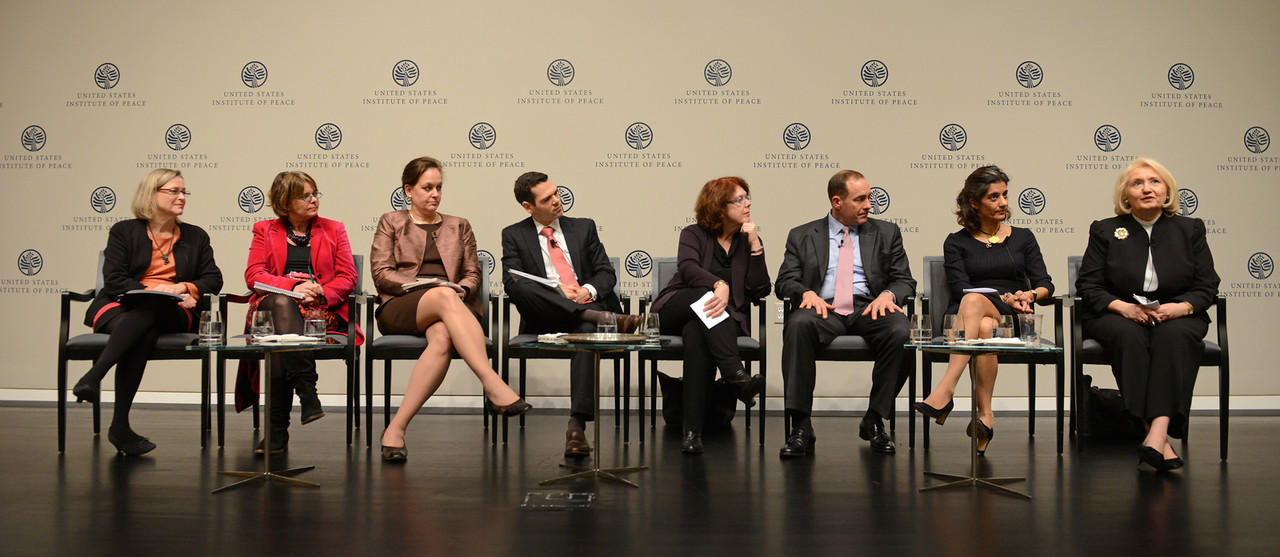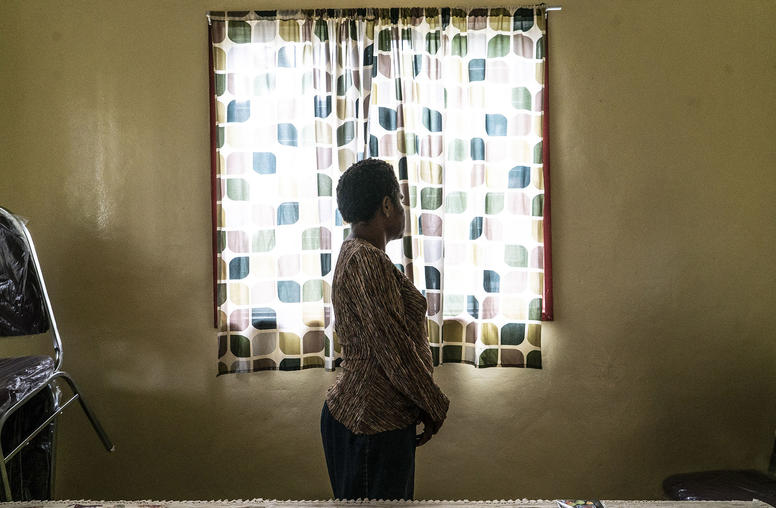Partners in Peace and Security
A Panel Discussion on the First Anniversary of the U.S. National Action Plan on Women, Peace, and Security: Progress and Challenges
This event featured an expert panel of representatives from key government agencies and civil society that will report on the progress of the U.S. National Action Plan on Women, Peace, and Security. Directly following the panel, a knowledge and resource fair highlighted over 20 organizations working on the Women, Peace, and Security agenda.
Read the event coverage, Women Mediating, War Commanders Adjusting – Progress on a U.S. Action Plan

This event was co-hosted with the U.S. Department of State; the U.S. Department of Defense; the U.S. Agency for International Development; and the U.S. Civil Society Working Group on Women, Peace and Security (CSWG). Join the conversation on Twitter with #usnap.
An expert panel of representatives from key government agencies and civil society organizations reported on the progress of implementing President Barack Obama's executive order creating a United States National Action Plan on Women, Peace, and Security (U.S. NAP). The U.S. NAP recognizes that effective security strategies engage women as equal partners in conflict prevention and peacebuilding, ensures their lives are protected, their experiences considered, and their voices heard. In this way, conflict can be more effectively avoided and peace better forged. To advance these goals, the U.S. NAP requires provisions for women's participation in peace processes and decision-making, protection from violence, conflict prevention, and access to relief and recovery.
Directly following the panel, a knowledge and resource fair highlighted over 20 civil society organizations working on the Women, Peace, and Security agenda.
Representation of the U.S. Civil Society Working Group on Women, Peace, and Security included:
- Amnesty International USA
- CARE
- Equality Now
- Futures Without Violence
- Georgetown University Initiative for Women, Peace and Security
- Global Network of Women Peacebuilders
- International Center for Research on Women
- International Civil Society Action Network
- International Foundation for Electoral Systems
- Inclusive Security Action
- International Research & Exchanges Board
- Peace X Peace
- Protect the People
- Refugees International
- SIPRI North America
- The Global Gender Program - The Elliot School of International Affairs
- U.S. National Committee for UN Women
- United Nations Association of the National Capitol Area
- Vital Voices Global Partnership
- Women Enabled, Inc.
- Women's Action for New Directions
- Women’s Campaign International
- Women in International Security
- Women's Refugee Commission
3:00 - 4:20 p.m. | Expert Panel on the U.S. National Action Plan on Women, Peace, and Security
- Sanam Anderlini, International Civil Society Action Network
- Ambassador Melanne Verveer, U.S. Department of State
- Deputy Assistant Secretary of Defense William Lietzau, U.S. Department of Defense
- Joan Timoney, Women's Refugee Commission
- Representative of the National Security Council
- Carla Koppell, U.S. Agency for International Development
- Chantal de Jonge Oudraat, SIPRI North America
- Kathleen Kuehnast, Center for Gender & Peacebuilding, USIP (moderator)
4:30 - 5:30 p.m. | Knowledge and Resource Fair
- Members of the U.S. Civil Society Working Group on Women, Peace, and Security



